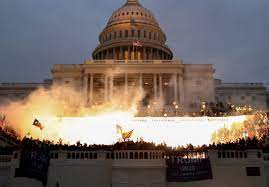This blog post continues the focus of the Law School’s Lubar Center on redistricting.
Republicans Could Get Last Word on Redistricting—as Democrats Did in 1983
You may have heard that the Wisconsin Supreme Court will be deciding legislative district lines that will stand for the next decade.
It might happen that way. But if Republicans win back the governor’s office and retain control of both houses of the Legislature this fall, they could redraw the map next year to favor their party even more than any of the GOP-leaning options the high court might choose.
That’s what Democrats did when they were in the same position 40 years earlier, although the 1983 Democratic effort differs significantly from the Republican-engineered 2011 redistricting plan that Democrats have denounced as an extreme partisan gerrymander.
A Supreme Court opinion in the current case will leave the door open for Republicans to redraw the map if they are in charge of both the legislative and executive branches.


 Prof. Rick Hasen of UCLA, an expert in election law, had an
Prof. Rick Hasen of UCLA, an expert in election law, had an